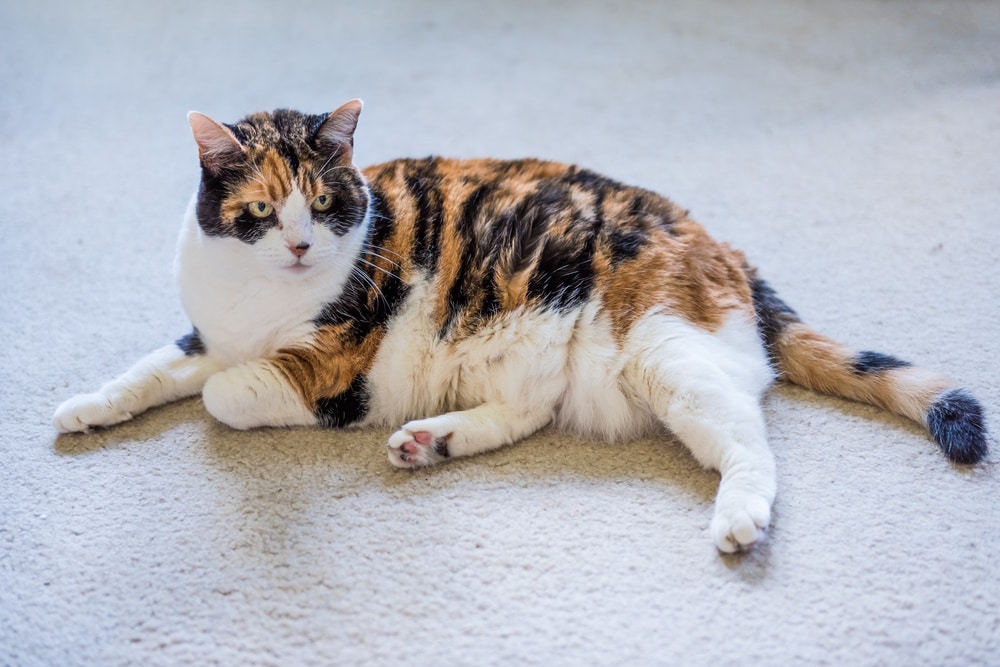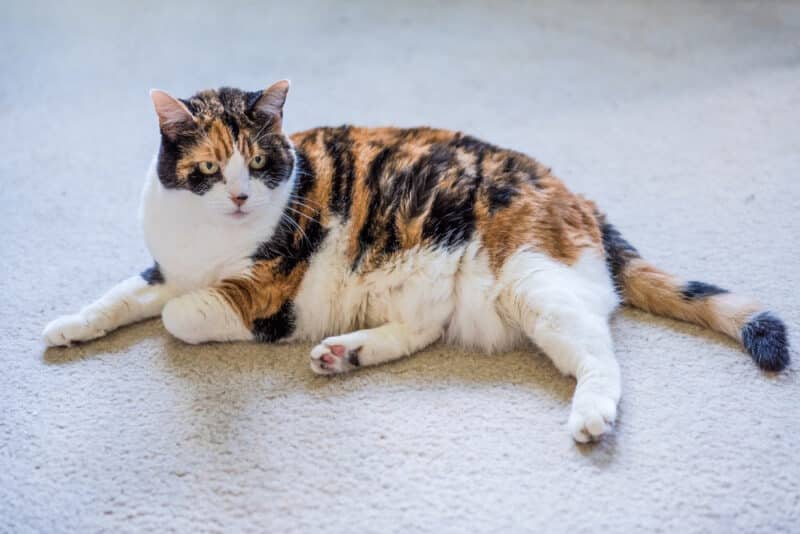Autistic people can have a wide range of experiences, but many find social situations challenging to navigate and prefer consistency and routines. Some autistic people demonstrate incredible talent in music, science, and math, and some require high support.
However, cats and humans have brains that are structured and operate in different ways; cats perceive, understand, and move through the world differently. Because autism describes human neurology, it simply doesn’t apply to cats. So no, Calico cats are not autistic.
What Is Autism?
Autism spectrum condition is how doctors describe autism. The language surrounding autism and other neurotypes is still developing. While there are differences in the extent of the challenges faced by autistic individuals, challenges in communication and social interaction often are part of the condition. Some autistic individuals don’t communicate verbally but most do. Many engage in repetitive behaviors, and intense light, sounds, and smells can easily become overwhelming.
Are Calico Cats a Breed?
Calico cats have distinctive orange, white, and black fur patterns but are not a separate breed. They often look quite a bit like tortoiseshell cats, except torties typically have orange and black fur.
Calico coats can be found throughout the cat world, and there are calico mixes as well as purebred calico kitties, including American shorthair, Maine Coon, Persian, and Turkish Angora cats. The pattern can be found in cats with short, medium, and long coats.
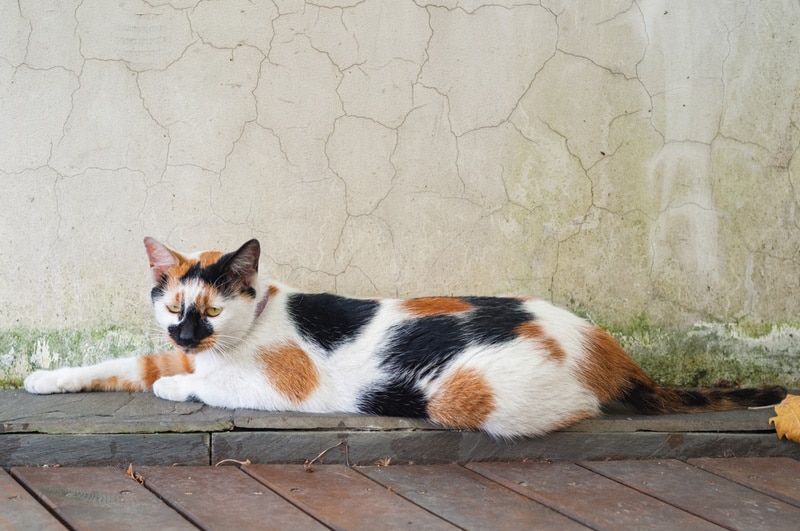
Do Calico Cats Have a Personality Type?
There’s no clear answer to this question! Some evidence suggests that pet parents see their calico cats as feisty, and they’re sometimes perceived as standoffish and irritable 1. They’re also described as loving and devoted.
Ultimately, little scientific evidence exists to support the idea that their coat color significantly impacts their personality.
In truth, breed probably plays a larger role when determining the temperament of pedigree cats. Calico Cornish Rex cats, for instance, are likely to be playful and loving, while calico Norwegian forest cats will probably be devoted and mellow but not terribly interested in cuddling.
How Long Do Calico Cats Live?
A calico’s breed influences their longevity. A calico Maine Coon cat can likely expect to live for 12 to 15 years, while a calico Persian cat is likely to live for 15 to 20 years. Most cats live for somewhere between 13 and 17 years.
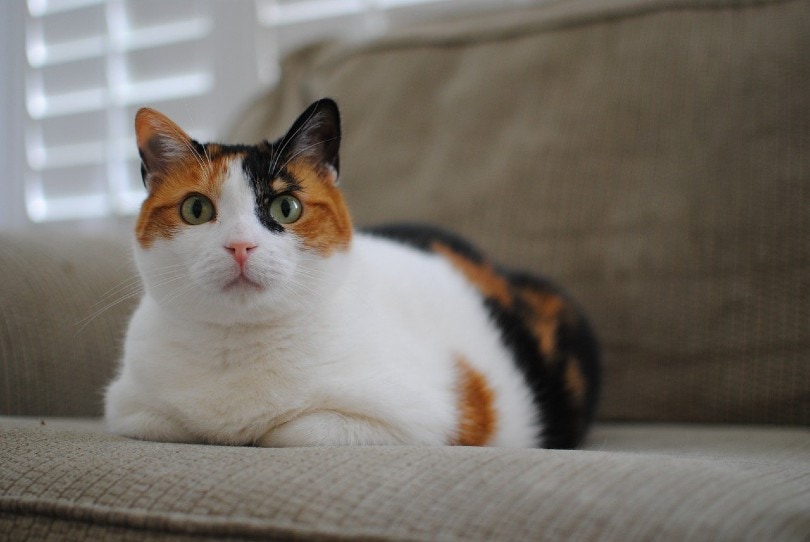

What Other Factors Tend to Influence Feline Longevity?
Similar to humans, diet, physical fitness, environmental factors, and medical care can all impact how long cats live.
1. Diet
Cats’ dietary needs are best met by feeding them high-quality commercial products that meet the American Association of Feed Control Officials (AAFCO) guidelines for nutritional adequacy.
Kittens and pregnant cats generally need to eat special food as they have different nutritional requirements than adult cats. There are also brands formulated to provide extra support for cats with conditions such as sensitive skin and painful joints.
2. Weight Management
Ensuring cats stay trim is one of the most important things cat parents can do for their companions. Obesity is a severe problem for all cats, not just calico ones. Cats that are overweight are at higher risk for developing chronic conditions such as heart disease, arthritis, and high blood pressure, and weighing too much can also have a negative impact on their longevity.
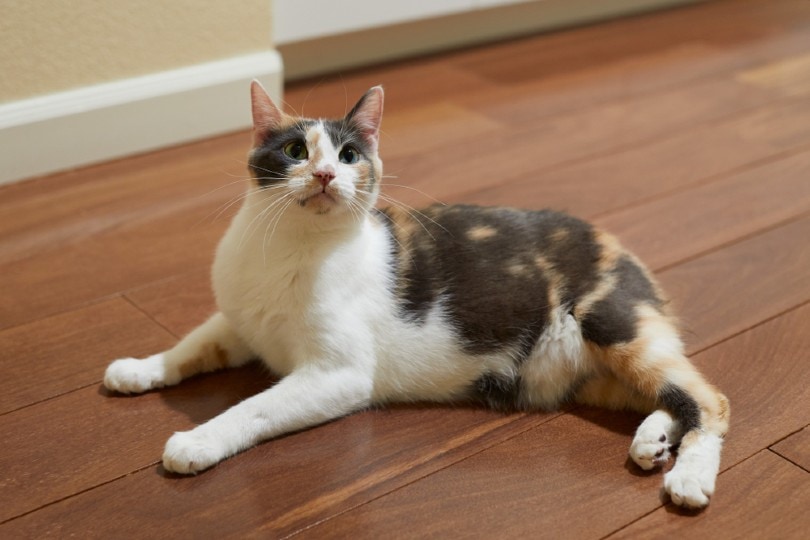
3. Mental Stimulation and Environment
Indoor cats tend to live far longer than outdoor cats, with some estimates that the average outdoor cat only survives between 2 and 5 years. Keeping cats indoors is one of the easiest ways to support their longevity, but for indoor cats to thrive, they need mental stimulation and a comfortable environment.
- Mental Stimulation: Playing with your cat daily can keep them happy and engaged. Videos of birds and music for cats can entertain them when they’re left alone for a few hours. Catnip and silvervine plush toys can motivate cats to get moving, and food puzzles can encourage them to use their problem-solving skills.
- Environment: Most cats love to perch high above it all, where they can relax while remaining aware of their surroundings. Vertical retreats provide cats with a sense of comfort that can put them at ease. Cat trees and shelves are both excellent choices.
Cats also benefit from having plenty of scratching options. Scratching is a natural and normal feline behavior, which helps keep cats’ claws in shape, but it also allows them to leave behind pheromones that create a scent that cats identify with the comforts of home.
4. Medical Care
Medical care can also greatly impact a cat’s health and overall well-being. Regular checkups can help catch medical issues before they become problematic. Veterinarians recommend that healthy adult cats have yearly checkups and that senior pets be seen at least two times per year to ensure that any health problems are caught as early as possible.
Spaying and neutering cats can also have health benefits. Neutered cats are less inclined to spray and get into altercations, and spaying cats prior to their first or second heat cycle drastically reduces (or eliminates) their risk of ending up with uterine and ovarian cancers.
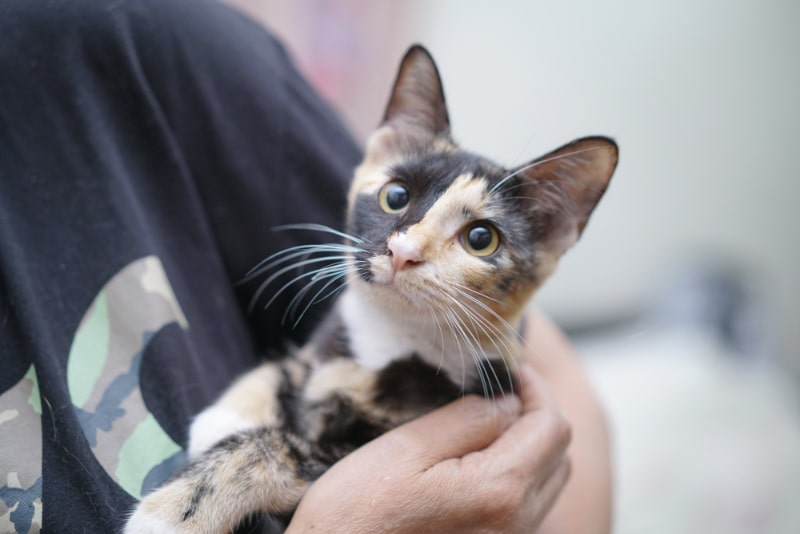
Frequent Asked Questions
Are Calico Cats Usually Female?
Yes! Most calico cats are female; they need two X chromosomes to get calico coats. Cats with one X and one Y chromosome are male and usually can’t end up with the color pattern. Some male cats with two X chromosomes and one Y can have calico coats, but they are rare.
Can Male Calico Cats Reproduce?
Generally, male calicos cannot reproduce. They have a condition called Klinefelter syndrome, and they’re usually sterile.
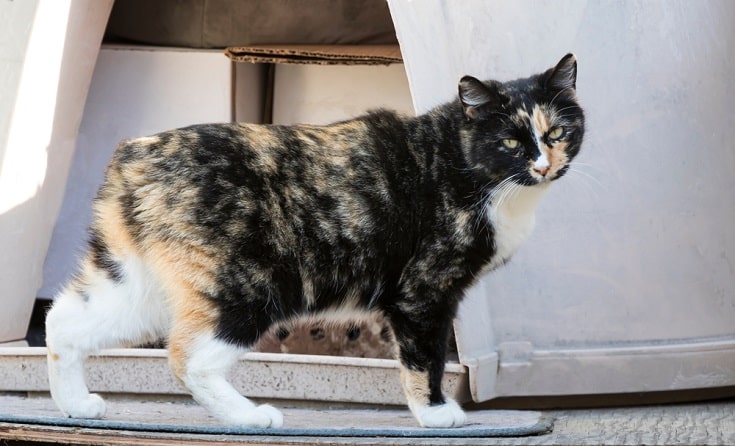
Are There Other Coat Colors in Cats That Are Linked to Sex?
Yes. Orange tabby cats are usually male, and there is an 80% chance that an orange tabby cat will be male. Tortoiseshell cats with gorgeous orange and black fur are almost always female.
Conclusion
Autism is a word that’s used to describe the ways in which individuals whose brains operate differently from how neurotypical people see, understand, experience, and interact with the world. Because autism essentially describes human brain function and how it plays out in the social world of people, the concept simply doesn’t apply to cats. Just like there are all types of amazing people with different talents, perspectives, and gifts, there are also several types of wonderful calico cats.
Featured Image Credit: Andriy Blokhin, Shutterstock

